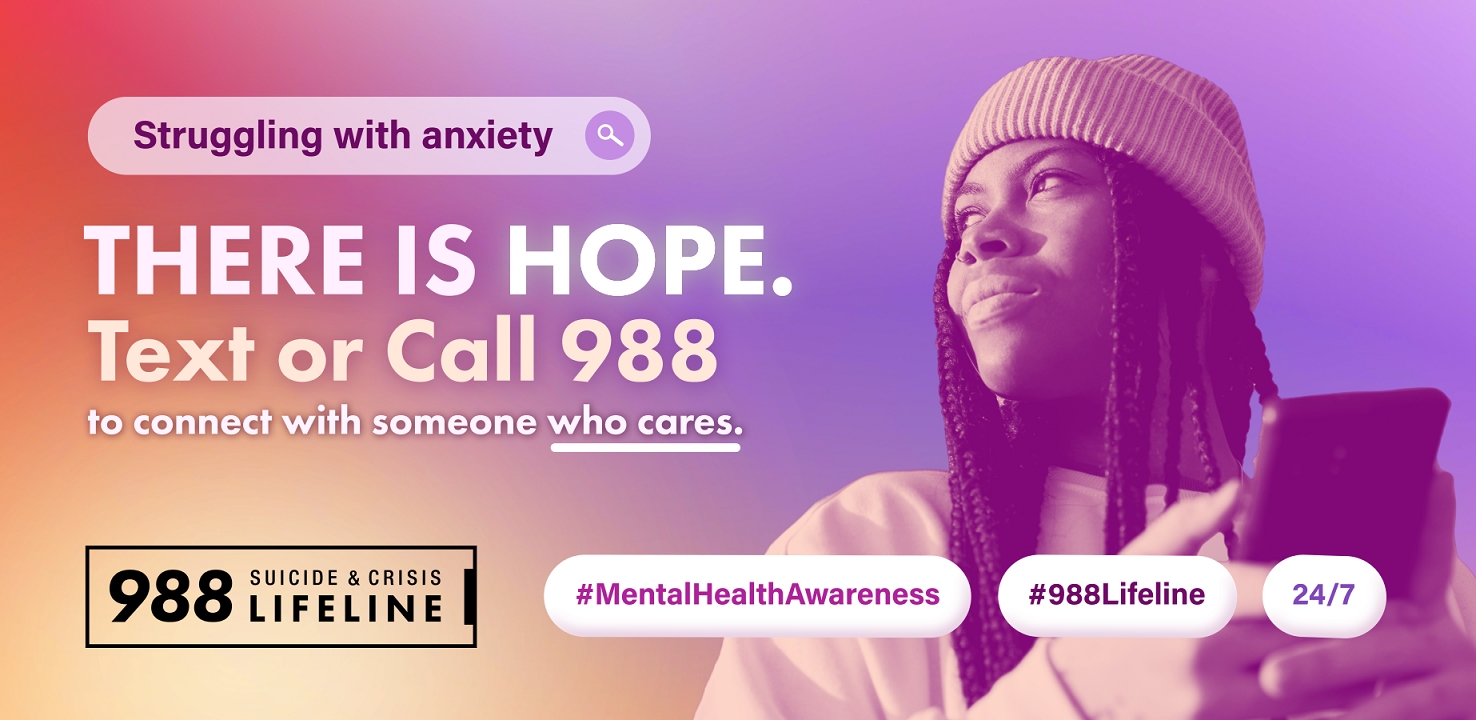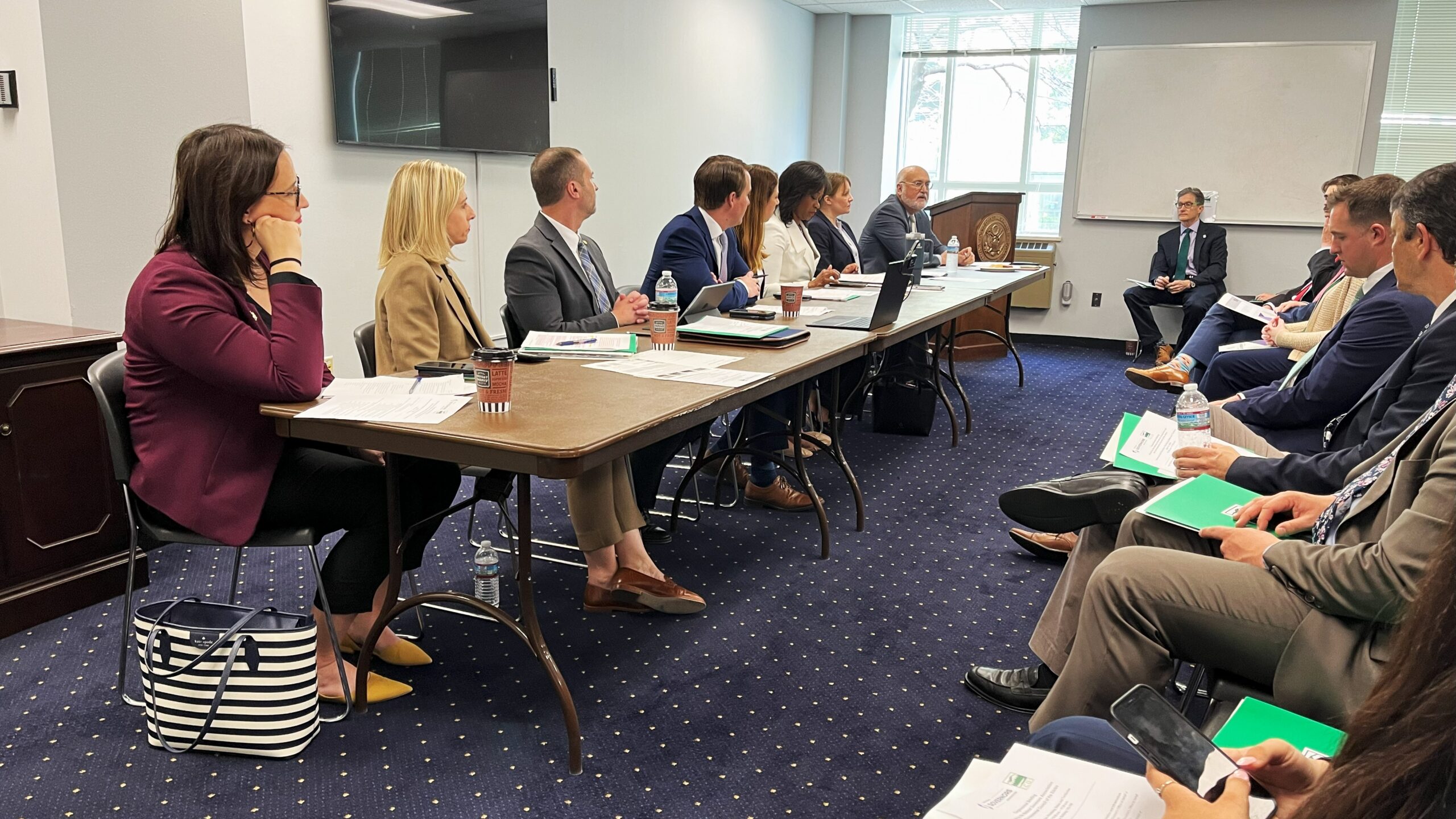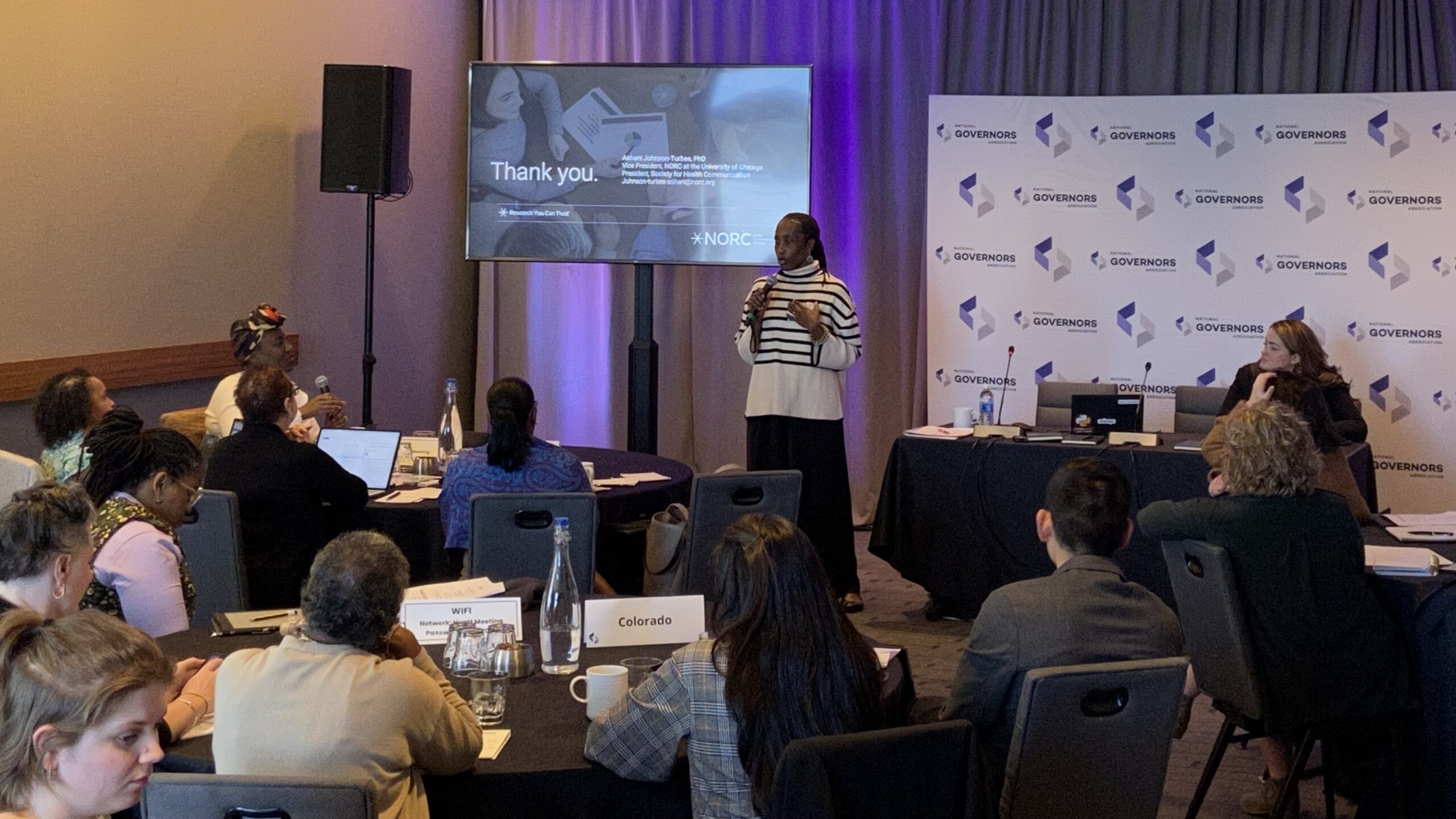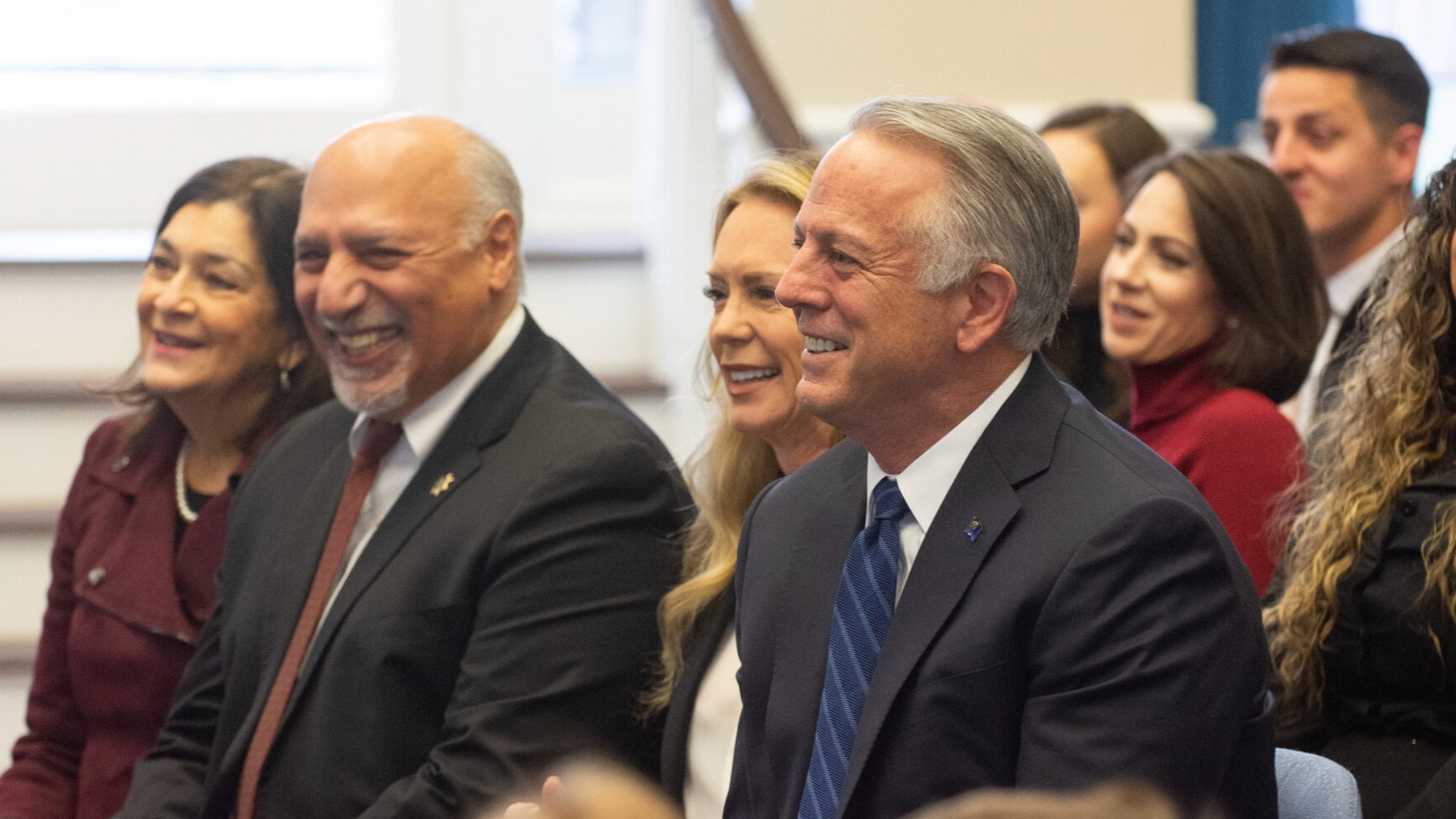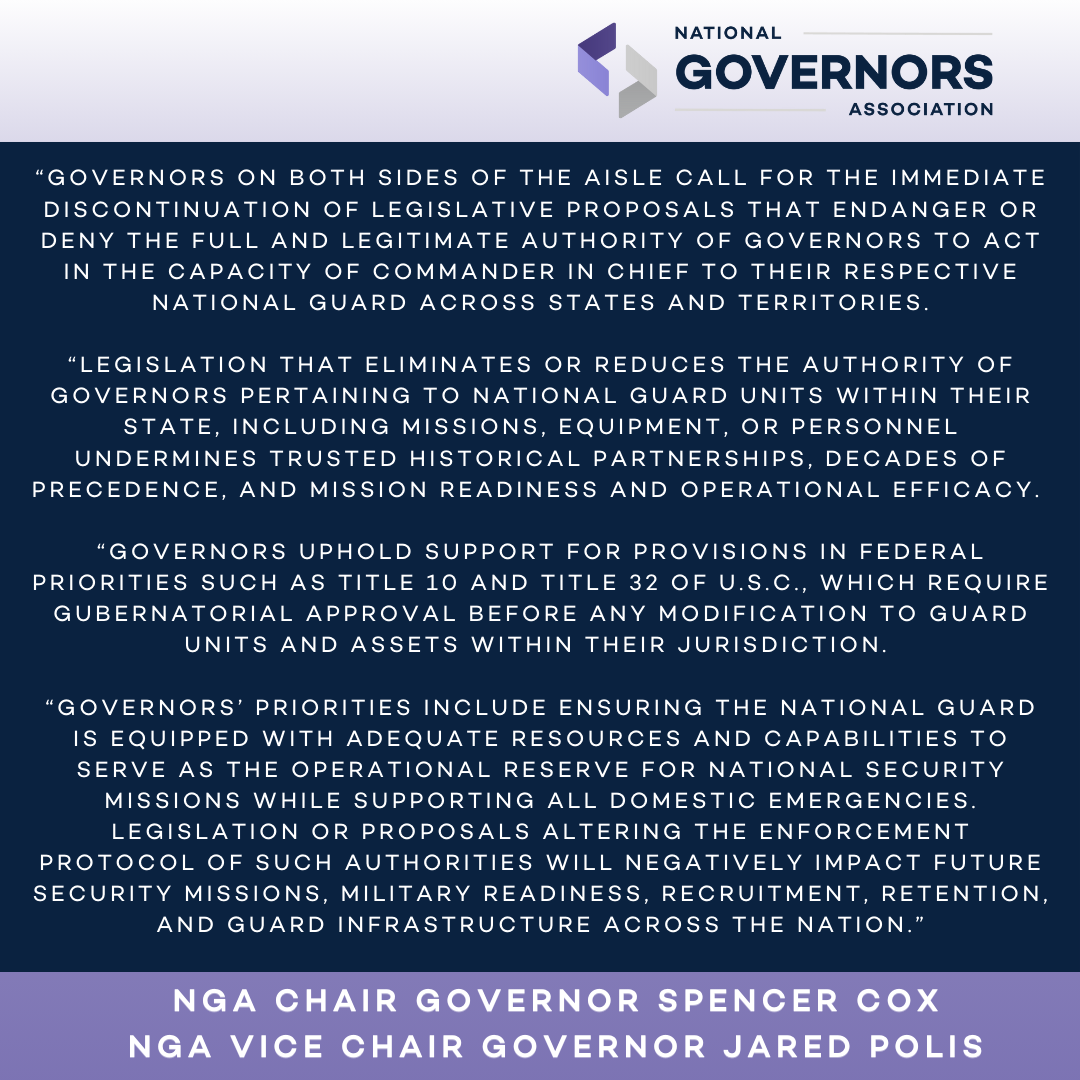This page lists select actions through 31 July 2020 as Governors responded to the novel coronavirus. It is not intended to be exhaustive but is meant to highlight key actions and resources that may inform other states and territories. A full archive of NGA COVID-19 related material can be found here.
Colorado Department fo Public Health & Environment coronavirus resource page.
Stay Healthy at Home Using Virtual Care
- March 2, 2020—In response to new coronavirus cases, Governor Polis announced that the state has raised its emergency preparedness level to level 2, with 10 state agencies having a representative available for contact at all hours of the day.
- March 10, 2020—Governor Polis signed an executive order declaring a state of emergency and requesting certain actions:
- The Colorado Department of Labor and Employment (CDLE) is directed to engage in emergency rulemaking to ensure workers in food handling, hospitality, child care, health care, and education can get paid sick leave.
- For workers who test positive and lack access to paid leave, the Governor is directing CDLE to identify additional supports and wage replacement such as access to unemployment insurance.
- The Colorado Department of Personnel and Administration will engage in emergency rulemaking regarding state employees.
- The Department of Revenue is directed to temporarily allow Coloradans over the age of 65 to extend their driver’s licenses online to avoid having to congregate at DMVs.
- The Colorado Department of Public Health and the Environment will be opening a drive-up lab at their facility in Lowry to test anyone who has a note from their doctor stating that they meet the criteria for testing.
- Governor Polis also encouraged the private sector to voluntarily offer paid sick leave.
- March 11, 2020—Governor Polis issued guidance to all K-12 schools recommending that if they have a student or faculty member who tests positive that they close for 72 hours, allowing for schools to be disinfected and for the epidemiologists to conduct an investigation and recommend next steps for those schools. More details on the guidance are available here.
- March 11, 2020—Governor Polis also instructed the Colorado Department of Public Health and the Environment and the Colorado Department of Human Services to engage in emergency rulemaking to limit visitation to facilities that serve older Coloradans, to screen all employees and visitors to these facilities, and to take necessary steps to protect those in these facilities.
- March 13, 2020 – The Governor issued guidance for large gatherings, recommending canceling or postponing any events with more than 250 people unless there are steps taken to ensure a distance of at least six feet between smaller parties at the event. The Governor’s update also highlighted the following actions:
- The Division of Insurance has made allowances for seniors to get an extra month’s supply of prescription medications.
- The state activated the National Guard to provide additional testing capacity around the state and train other community medical providers on standing up their own mobile testing labs.
- The Governor instructed the Colorado Department of Regulatory Agencies to cut through red tape on licensing medical professionals so that medical professionals with licenses in other states can be licensed in Colorado as quickly as possible. The state has already contracted to have dozens of nurses from out-of-state arrive on Monday to help with Colorado communities that have been hit the hardest. CDPHE has also authorized every EMT and paramedic in the state to administer the test.
- March 14, 2020 – The Governor issued an executive order directing downhill ski resorts to suspend operations for one week to slow the spread of COVID-19 and conserve medical resources in the state’s mountain communities.
- March 14, 2020 – The Governor and the Colorado Department of Public Health and Environment is restricted all visitors at skilled nursing, assisted living, and intermediate care facilities to protect the health of the residents and health care workers at those facilities.
- March 16, 2020 – The Colorado Department of Public Health and Environment issued a public health order to close bars, restaurants, gyms, theaters, and casinos to slow the spread of COVID-19, effective at 8:00 AM on March 17 for the duration of 30 days.
- March 16, 2020 –The Governor announced Department of Motor Vehicles and all Department of Revenue facilities will be closed to the public for one month from March 18 – April 18. All state driver license offices will be closed to the public but will continue to process online license and ID renewals and other DMV online services.
- March 16, 2020 – The Colorado Department of Education has received a waiver from the US Department of Agriculture to continue serving free and reduced meals to r students while schools are closed.
- March 16, 2020 – The State of Colorado welcomed 50 nurses dedicated to help with the state’s COVID-19 response. This was made possible with funding from the Disaster Emergency Fund freed up by the Governor’s March 11 Executive Order.
- March 16, 2020 – The Governor announced the launch of the Doing My Part CO digital campaign to encourage residents to practice proper hygiene and social distancing, as well as getting groceries or medicine for elderly neighbors.
- March 17, 2020 – The Governor signed an executive order and House Bill 20-1359 allowing Colorado’s political parties to amend certain rules and procedures governing the conduct of their assemblies and conventions and to limit in-person contact during nominating assemblies and conventions.
- March 18, 2020 – The Governor announced the launch of the Help Colorado Now effort where Coloradans can donate or volunteer, as well as the Colorado COVID Relief Fund, which has already raised nearly $3 million to help Coloradans impacted by COVID-19.
- March 18, 2020 – The Governor issued an executive order suspending in-person learning in public and private schools across the state from March 23 to April 17. The executive order also directs the following actions:
- Colorado school districts and the Charter School Institute will make every effort to provide alternative learning opportunities while taking into account the needs of local communities.
- The Commissioner of Education will issue guidance to support P-12 school systems in developing and implementing plans to assist families and students in accessing alternative learning, providing free and reduced lunch and breakfast, and offering waivers for instructional time as appropriate.
- March 18, 2020 – The Governor issued an executive order extending the suspension of downhill ski area operations through April 6. The order extends his previous order suspending ski area operations until March 22.
- March 18, 2020 – The Colorado Department of Public Health issued a public health order prohibiting gatherings of more than 10 people.
- March 18, 2020 – The Governor signed two bills:
- HB 20-1301: Allowing local school district boards of education to adopt policies allowing board members to participate in meetings electronically, as long as a quorum of board members is physically present.
- SB 20-091: Setting the minimum pay for a member of the Colorado National Guard to be equivalent to the pay rate of an enlisted person holding the rank of E-4 with over six years of service.
- March 19, 2020 – The Governor signed an executive order temporarily suspending elective and nonessential surgeries and procedures to preserve important medical equipment, like personal protective equipment and ventilators.
- March 19, 2020 – The Governor issued an updated executive to limit in-person contact concerning elections operations of the Secretary of State’s Office.
- March 19, 2020 – The Colorado Department of Public Health and Environment issued an updated public health order closing bars, restaurants, theaters, gyms, and casinos to include nonessential personal services facilities, horse track, and off-track betting facilities statewide.
- March 19, 2020 – The Division of Insurance and Connect for Health Colorado announced Emergency Regulation 20-E-02 will establish a special enrollment period for uninsured Coloradans to get health insurance.
- March 19, 2020 – The Governor secured a federal loan valued at $2 Million for small businesses as part of the Small Business Administration’s Economic Injury Disaster Loan program.
- March 20, 2020 – The Governor established the Colorado Emergency Childcare Collaborative, which will create a system of emergency childcare for essential workers, including healthcare and public safety workers.
- March 20, 2020 – The Governor announced the Department of Regulatory Agencies (DORA) is working with state-chartered financial institutions to address the threat of residential and commercial foreclosures and displacement.
- March 20, 2020 – The Governor announced the Colorado Department of Labor and Employment’s (CDLE) Unemployment Insurance Division to expedite claim payments during this state of emergency.
- March 20, 2020 – The Governor announced an executive order extending the income tax payment deadline for all Colorado taxpayers by 90 days until July 15, 2020, without penalty or interest. The order includes the following provisions:
- Does not impose any caps on the amount of tax that can be deferred.
- Grants an extension for taxpayers who are required to make estimated income tax payments for the 2020 tax year.
- Directs the Department of Revenue (DOR) to coordinate with local governments that choose to extend tax payment deadlines for property, sales, and use taxes.
- March 20, 2020 – The Governor announced the Governor’s Economic Stabilization and Growth Council.
- March 20, 2020 – The Governor issued an executive order allowing retailers licensed for the sale of on-premises alcohol consumption to sell, deliver or provide takeout for sealed alcoholic beverages if the customer also purchases food. The order includes the following provisions:
- Suspends the requirement of a physical examination for a medical marijuana card to be issued; and
- Suspends the prohibition on online sales for retail marijuana stores.
- March 22, 2020 – The Governor signed an executive order directing all of Colorado’s non-critical employers to reduce their in-person workforce by 50 percent. The order includes the following provisions:
- Directs all employers to implement telework options to the greatest extent possible.
- March 22, 2020 – The Governor launched the state’s Innovation Response Team (IRT) to bring together public and private sector resources and innovations.
- March 25, 2020 – The Governor announced a statewide stay-at-home order beginning on Thursday, March 26 at 6:00 a.m. that will last until April 11, 2020.
- March 26, 2020 – The Governor released an updated public health order in accordance with his executive order implementing a statewide stay-at-home order to include other critical services.
- March 26, 2020 – The Governor issued an executive order authorizing certain state agencies to promulgate and issue emergency rules extending the expiration date for certain licenses and other documents to limit in-person renewals.
- March 26, 2020 – The Governor issued an executive order updating protocol for state prisons and community corrections facilities by providing flexibility to suspend certain requirements.
- March 26, 2020 – The Centers for Medicare & Medicaid Services (CMS) approved Colorado’s request for a Section 1135 Medicaid waiver. The approved waiver enables Colorado to provide flexibilities in Medicaid provider screening and enrollment, forgo certain pre-admission screening and annual resident review assessments, lift prior authorization requirements, allow for reimbursement facility services in alternative settings, extend fair hearing timelines, and waive public comment and tribal consultation requirements for certain changes to the Medicaid state plan.
- March 26, 2020 – The Governor issued an executive order temporarily suspending the personal appearance requirement before notarial officers to perform notarizations. The order also authorizes the Secretary of State to promulgate and issue temporary emergency rules in order to facilitate remote notarization.
- March 26, 2020 – The Governor issued an executive order allowing Coloradans to get their marriage licenses without going in person.
- March 27, 2020 – The Governor issued an executive order allowing the state to access additional funds from the Disaster Emergency Fund.
- March 27, 2020 – The Colorado Division of Insurance (DOI), part of the Department of Regulatory Agencies (DORA), took action to reduce insurance delays for restaurants and workers. The emergency regulation 20-E-03 removes restrictions on two different types of auto insurance for the duration of Public Health Order 20-22.
- March 27, 2020 – The Governor announced an updated public health order corresponding with the stay-at-home executive order. The changes include:
- Critical businesses must comply with a stay at home and social distancing requirements and should minimize staff to those who are critical to the functioning of the business;
- Necessary travel now includes transporting children between separate households pursuant to a parenting plan or other agreement governing parental responsibilities and non-residents returning to their place of residence;
- Essential government services now include airports, activities related to the conduct of elections, and local governments; and
- Minimum basic operations now include filling online product orders and to process customer orders remotely.
- March 29, 2020 – The Governor announced that President Donald Trump has approved his request in declaring a Major Disaster for the State of Colorado.
- March 31, 2020 – The Governor urged the Acting Secretary of the Department of Homeland Security to request automatic extensions of work authorizations for all Deferred Action for Childhood Arrivals (DACA) recipients whose grants expire in 2020.
- April 1, 2020 – The Governor announced that he would extend the suspension of normal in-person learning at all public and private elementary and secondary schools until April 30.
- April 1, 2020 – The Governor issued an executive order expanding the use of telehealth services.
- April 2, 2020 – The Governor announced the Special Enrollment Period for individual health insurance will be extended to run through April 30, 2020. The original period that was announced on March 19 was set to end on Friday, April 3.
- April 3, 2020 – The Governor announced that he is asking all Coloradans to wear cloth face coverings when they go out of the house for essential functions like grocery shopping. The state has partnered with ColoradoMaskProject.com, where people can find patterns for making their own masks and ideas for how to help others, who can’t make their own, get one.
- April 6, 2020 – The Governor announced an extension to the stay-at-home executive order until April 26.
- April 6, 2020 – The Governor issued an executive order allowing for a one-month extension for filing and remitting state and state-administered local sales tax.
- April 9, 2020 – The Governor issued an executive order today extending the disaster emergency declaration for COVID-19 for an additional 30 days.
- The executive order also extends deadlines for state severance taxes from April 15 until May 15, 2020.
- April 9, 2020 – The Governor issued an executive order suspending certain regulatory statutes concerning juvenile justice, regional centers, and behavioral health to provide the Colorado Department of Human Services with flexibility to respond to COVID-19.
- April 12, 2020 – The Governor unveiled a new state website with free resources, stayathomeco.colorado.gov. It has health resources, education, entertainment, and more to make staying at home more bearable.
- April 13, 2020 – The Governor sent a letter encouraging hotel and motel owners and operators to rise to the challenge in addressing COVID-19 by entering agreements to temporarily house homeless Coloradans, along with some of the state’s most vulnerable.
- The Governor also sent a letter in response to the General Assembly, Denver City Council and RTD Board, saying that he will mobilize 250 Colorado National Guard (CONG) members to support existing shelters in the City and County of Denver with staffing shortages for those who are experiencing homelessness.
- April 14, 2020 – The Governor issued an executive order, amending previous orders which supports emergency childcare for essential workers and temporarily suspends certain statutes, enabling schools and school districts to focus on delivering instruction and student services.
- April 14, 2020 – The Governor issued an executive order, extending and amending previous orders which limits in-person contact for the 2020 elections and the secretary of state’s operations. The executive order is extended by an additional 30 days.
- April 15, 2020 – The Governor announced the key indicators that are guiding Colorado’s process for ongoing updates to policies, guidance, and requirements on statewide social distancing measures. The indicators are:
- Implementing social distancing measures in an economically and psychologically sustainable manner;
- Ensuring the capacity to care for those who are ill (COVID-19 and non-COVID-19 related illnesses) without sacrificing the quality of care; and
- Increasing efforts to prevent infection in vulnerable Coloradans.
- April 15, 2020 – The Governor issued anexecutive order providing hospitals and health care providers more flexibility to expand the trained medical personnel available to provide health care services within inpatient facilities.
- April 15, 2020 – The Governor issued an executive order temporarily suspending a statute concerning fire bans in order to provide boards of county commissioners with broader discretion and greater flexibility to implement restrictions on open burning.
- April 17, 2020 – The Governor and the Colorado Department of Public Health and Environment issued an updated public health order that will require long-term care facilities to create a detailed isolation plan and submit it to CDPHE for review by May 1.
- April 17, 2020 – The Governor announced that the Colorado National Guard will deploy to conduct testing at the three largest nursing homes in the state, and that the state will be deploying additional testing and human resources to other facilities as needed.
- April 17, 2020 – The Governor issued an executive order requiring that staff at critical businesses wear non-medical face coverings while at work and wear gloves (if gloves are provided by an employer) when in contact with customers or goods.
- April 17, 2020 – The Governor’s Council on Economic Stabilization and Growth allocated $2.5 million from the Colorado Economic Development Commission as seed money for the Energize Colorado Gap Fund. This assistance fund will ask foundations, corporations and wealthy individuals to provide money that can be provided to struggling enterprises in the forms of loans and grants.
- April 17, 2020 – The Governor established the COVID Health Equity Response Team to address racial inequities regarding positive cases and deaths related to COVID-19. The Response Team will:
- Ensure equity as a factor in decision-making around logistics and resources;
- Increase access to testing and care services;
- Ensure racial and ethnicity COVID-19 data are accessible, transparent and used in decision-making; and
- Share time-sensitive information about how Colorado communities are experiencing particular challenges related to the COVID-19 response.
- April 19, 2020 – The Governor issued an executive order amending and extending Executive Order D 2020 010, which suspended statute to extend the income tax payment deadlines to July 15, 2020 for all Colorado taxpayers to quickly provide relief from payment and penalties. The new executive order extends Executive Order D 2020 010 for another thirty days and aligns with the IRS filing date extension.
- April 20, 2020 – The Governor announced that starting April 27, the state will move onto the “Safer at Home” phase. During this phase, Coloradans will no longer be ordered to stay home but are still strongly encouraged to do so.
- April 22, 2020 – The Governor issued an executive order extending the suspension of normal in-person instruction at all public and private elementary and secondary schools until the end of the 2019-2020 school year.
- April 23, 2020 – The Governor extended an executive order authorizing certain state agencies to promulgate and issue emergency rules extending the expiration date for certain licenses and other documents to limit in-person renewals.
- April 23, 2020 – The Governor amended and extended an executive order that suspends certain criminal justice statutes to give the Colorado Department of Corrections discretion to combat the spread of COVID-19 in state prisons.
- April 25, 2020 – The Colorado Office of Economic Development extended funds to the state’s three nonprofit microlenders allowing them to provide loans through the federal Paycheck Protection Program.
- April 26, 2020 – The Governor issued an executive order outlining a new level in Colorado’s response including a more sustainable way of living for Coloradans while slowing the spread of the virus and allowing more Coloradans to return to work.
- April 26, 2020 – The Governor issued an executive order allowing medical, dental, and veterinary voluntary or elective surgeries and procedures to resume as long as the health care facility or other setting is following the required safety protocols.
- April 26, 2020 – The Governor issued an executive order establishing the New Normal Advisory Board that will coordinating and harmonizing policies and rules designed to maximize social distancing during the Safer at Home phase.
- April 27, 2020 – The Governor announced Colorado along with Nevada has joined California, Oregon and Washington in the Western States Pact – a working group of Western state governors with a shared vision for modifying stay at home and fighting COVID-19.
- April 27, 2020 – The Governor issued an executive order implementing a number of measures for the “safer-at-home” phase that will allow many Coloradans to return to work while we maintain a sustainable level of social distancing.
- April 30, 2020 – The Office of eHealth Innovation (OeHI) announced the state is expanding access to telehealth resources for Coloradans.
- April 30, 2020 – The Governor issued an executive order restricting spending for the current fiscal year ending June 30, 2020.
- April 30, 2020 – The Governor issued an executive order directing the Department of Health Care Policy and Financing to provide additional funds to nursing homes and other congregate care facilities.
- April 30, 2020 – The Governor issued an executive order extending the date that unaffiliated candidates may begin collecting signatures.
- April 30, 2020 – The Governor extended executive orders for the following actions:
- Temporarily suspending the personal appearance requirement before notarial officers to perform notarizations;
- Temporarily suspending requirements preventing issuance of marriage licenses;
- Extending the closure of downhill ski areas until May 23;
- Expanding the use of telehealth services;
- Temporarily suspending certain statutes to provide State agencies with flexibility to fulfill their duties, and
- Limiting evictions, foreclosures, and public utility disconnections to provide relief to Coloradans.
- May 1, 2020 – The Governor announced a new special assignment committee within the Behavioral Health Task Force that will focus on the effects of COVID-19 on behavioral health in Colorado.
- May 1, 2020 – The Governor announced that FEMA has activated the Crisis Care Program (CCP) for the State of Colorado. The CCP provides reimbursements to local organizations that support individuals and communities as they recover from the psychological effects of disasters.
- May 1, 2020 – The Governor issued an executive order temporarily suspending certain statutes concerning taxpayer filing requirements for certain taxable property.
- May 1, 2020 – The Governor announced 2-1-1, Colorado’s free information hotline, will now be answering questions about worker protections and health care discrimination.
- May 4, 2020 – The Governor issued an executive order to allow food trucks to operate at Colorado’s rest areas to support truckers and the movement of commercial vehicle activities.
- May 4, 2020 – The Governor unveiled a new interactive map of community-based testing sites that local public health departments have set up across the state.
- May 4, 2020 – The Governor issued an executive order continuing the extension for filing and remitting state and state-administered local sales tax until May 20, 2020.
- May 6, 2020 – The Governor announced the Center for Medicaid & Medicare Services (CMS) approved an emergency funding request for $7.9 million to telemedicine and other critical health innovation and infrastructure projects to ensure clinicians and patients are safe and healthy during this uncertain time.
- May 8, 2020 – The Governor issued an executive order extending the Disaster Emergency Declaration for COVID-19.
- The order also extends the employment of the Colorado National Guard to support and provide planning resources to state and local authorities.
- May 8, 2020 – The Governor issued an executive order extending the Disaster Emergency Declaration for COVID-19.
- May 8, 2020 – The Governor announced a new initiative: Can Do Colorado. This will provide guidance and tips to businesses about increasing teleworking capabilities and highlight businesses that are being creative and going above and beyond to run their businesses safely and remotely.
- May 8, 2020 – The Governor launched “Connect to Care Jobs” through the Department of Health Care Policy and Financing (HCPF), in partnership with ADvancing States, to match health care job seekers with immediate openings in residential care settings.
- May 8, 2020 – The Governor issued an executive order extending the temporary suspension of certain statutes to provide an extension for filing and remitting state severance tax until May 15, 2020.
- May 10, 2020 – The Governor issued an executive order amending and extending previous and temporarily suspending certain regulatory statutes related to the Colorado Department of Human Services (CDHS).
- May 11, 2020 – The Governor announced the Colorado Department of Education and the Colorado Education Initiative are partnering with Rocky Mountain Public Media (RMPBS, KUVO JAZZ, The DROP) to provide K-3 learners, and their families and caregivers with direct-to-home remote literacy learning though “Colorado Classroom – Read With Me at Home” starting May 18.
- May 11, 2020 – The Governor announced that starting May 12, residents may begin booking campsites at campgrounds in state parks where host counties that would like them open. Sites must observe social distance and sanitation guidelines and accept campers by reservation only.
- May 12, 2020 – The Governor launched Spanish language Facebook and Twitter pages to help disseminate important information related to COVID-19.
- May 14, 2020 – The Governor issued an executive order continuing the temporary suspension of statute in order to provide boards of county commissioners with broader discretion and greater flexibility to implement restrictions on open burning
- May 14, 2020 – The Governor issued an executive order continuing the temporary suspension of certain statutes and rules to expand the health care workforce for hospitals and other inpatient treatment facilities.
- May 17, 2020 – The Governor issued an executive order authorizing the Colorado Department of Public Health and Environment (CDPHE) to reallocate existing funds from contracts with local public health agencies to COVID-19 response activities.
- CDPHE was also authorized to redirect certain state funds to behavioral research designed to inform COVID-19 recommendations and educational campaigns focused on minority and traditionally disadvantaged communities.
- May 17, 2020 – The Governor extended an executive order to help protect workers and residents in long-term care facilities and many other critical industries.
- May 17, 2020 – The Governor issued an executive order suspending certain statutes that will allow Coloradans to remain eligible for critical programs like Medicaid and the Children’s Basic Health Plan.
- May 17, 2020 – The Governor issued an executive order extending certain state income tax payment deadlines until July 15, 2020 for all Colorado taxpayers to quickly provide relief from payment and penalties.
- May 17, 2020 – The Governor issued an executive order concerning signature collection for ballot issues, which authorizes the Secretary of State to create temporary rules for registered electors to receive and return issue petitions over mail and email, and to support safe in-person signature gathering.
- May 17, 2020 – The Governor issued an executive order which temporarily suspends the statutory provisions requiring registered electors to sign petitions for unaffiliated and independent candidates in the presence of a petition circulator, and authorizes the Secretary of State to issue rules that allow for signature collection in a manner that protects public health.
- May 17, 2020 – The Governor issued an executive order limiting in-person contact for the 2020 elections while allowing the elections to proceed safely and without interruption to the Secretary of State’s operations.
- Colorado Department of Public Health and Environment (CDPHE) also updated the state’s Safer At Home Public Health Order (PHO) to further clarify that elections are a critical government function. The order adds to its list election operations, including election judges, signature gatherers and circulators, campaign workers, and volunteers.
- May 18, 2020 – The Governor announced how the state will spend $1.67 billion in federal coronavirus aid, directing more than half of it to the state’s schools, colleges and universities.
- May 20, 2020 – The Governor issued an executive order allowing the operation of alternate care sites.
- May 22, 2020 – The Governor issued an executive order that increases Colorado’s Medicaid home health workforce and eliminates copays for COVID-19 testing for individuals who rely on Medicaid.
- May 22, 2020 –The Governor issued an executive order extending the state’s disaster declaration.
- May 22, 2020 – The Governor amended an executive order concerning criminal justice, extending provisions related to the Department of Corrections’ (DOC) duty to receive and take custody of individuals.
- May 24, 2020 – The Governor amended and extended an executive order authorizing certain state agencies to promulgate and issue emergency rules extending the expiration date of licenses and other documents.
- May 25, 2020 – The Governor updated and extended the Safer at Home Executive Order. The executive order also directs the relevant agencies to develop and issue guidance related to restaurants and summer camps.
- Beginning on May 27, restaurants will be able to open for in-person dining at 50% capacity of the indoor posted occupancy code limit, but they cannot exceed 50 people, whichever is less.
- Children’s day camps and youth sports camps will open on Monday, June 1, 2020. Residential overnight camps will be closed in June. Decisions for July and August overnight camps will be made in mid-June.
- Effective May 25, 2020 private campsites are open.
- May 25, 2020 – The Governor announced the expiration of the executive order closing ski resorts. Ski resorts may work to secure approval from their local authorities to open.
- May 26, 2020 – The Governor issued an executive order allowing voluntary or elective surgeries and procedures to proceed under certain conditions.
- May 28, 2020 – The Governor issued an executive order changing the fund source for the accounting of certain CARES Act Fund dollars for education and clarifies the permissible uses of CARES Act Fund dollars for units of local government.
- May 28, 2020 – The Governor issued an executive order amending Executive Order D 2020 070 directing the expenditure of federal funds pursuant to the Coronavirus Aid, Relief, and Economic Security Act of 2020 (CARES Act).
- May 29, 2020 – The Governor extended the executive order limiting evictions, foreclosures, and public utility disconnections and expediting unemployment insurance claim processing for 15 days.
- May 29, 2020 – The Governor signed an extension for the Colorado Department of Health Care Policy and Financing (HCPF) to provide additional funds to nursing homes and other congregate care facilities that care for vulnerable older and disabled populations.
- May 29, 2020 – The Governor signed an extension and amended the following executive orders:
- Temporarily suspending certain regulatory statutes;
- Petition collection for unaffiliated and independent candidates;
- Temporarily suspending the personal appearance requirement before notarial officers to perform notarizations;
- Suspending certain statutes preventing the issuance of marriage licenses when county clerk and recorder offices are closed; and
- Expanding telehealth services.
- June 3, 2020 – The Governor announced that the Corporation for National and Community Service (CNCS) will mobilize more than 800 AmeriCorps and Senior Corps members to support the State of Colorado’s COVID-19 response.
- June 3, 2020 – The Governor announced the opening up of playgrounds and swimming pools at limited capacity, and has also released draft guidance on reopening houses of worship, certain forms of outdoor recreation and personal recreation, and updates to the child care and personal services guidance.
- June 5, 2020 – The Governor issued an executive order allowing restaurants to obtain temporary approval from state and local licensing authorities to modify their licensed premises to include outdoor dining areas within 1,000 feet of the restaurant, and also allowing for the consumption of alcoholic beverages on a public right of way.
- June 8, 2020 – The Governor announced a partnership with Kinsa, a public health company, to distribute 15,000 Kinsa smart thermometers to families of first responders and essential workers in Aurora, Montrose, and Edwards.
- June 8, 2020 – The Governor sent a letter to the Director of the Centers for Disease Control and Prevention requesting assistance in ensuring Colorado is prepared to respond during flu season, without overwhelming the health care system.
- June 9, 2020 – The Governor issued an executive order amending and extending prior executive orders suspending certain regulatory statutes concerning juvenile justice, regional centers, and behavioral health.
- June 11, 2020 – The Governor announced the Can Do Colorado Community Challenge, an extension of Can Do Colorado, which spotlights and supports innovative businesses that are finding creative ways to continue serving their customers safely, implementing teleworking, and reducing in-person interactions during the COVID-19 pandemic.
- June 12, 2020 – The Governor issued an executive order extending changes to the 2020 primary election to limit in-person contact while allowing the elections to proceed safely and without interruption to the Secretary of State’s operations.
- June 12, 2020 – The Governor issued an executive order expanding the health care workforce for hospitals and other inpatient treatment facilities.
- June 14, 2020 – The Governor issued an executive order requiring state agencies to help prevent evictions of tenants economically harmed by the coronavirus pandemic.
- June 14, 2020 – The Governor issued an executive order allowing the Department of Local Affairs to continue to provide rental and mortgage assistance and encourages local governments to loosen housing restrictions.
- June 14, 2020 – The Governor issued an executive order continuing expedited unemployment insurance claims processing and another providing relief to public utility customers.
- June 14, 2020 – The Governor issued an executive order temporarily suspending certain statutes around signature collection for unaffiliated and independent candidates who are required to file petition.
- June 14, 2020 – The Governor issued an executive order requiring the temporary suspension of certain regulatory statutes concerning the signature collection for ballot issues and authorizing the Secretary of State to create temporary rules to allow for mail and email signature collection.
- June 14, 2020 – The Governor issued an executive order temporarily suspending certain statutes to maintain eligibility for Coloradans enrolled in Medicaid and the Children’s Basic Health Plan.
- June 15, 2020 – The Governor announced Protect Our Neighbors, a framework that will empower local governments that can demonstrate strong public health and health care systems, paired with low virus levels, to make decisions about how they should reopen.
- June 15, 2020 – The Governor announced a new round of Safer at Home guidelines to further relax restrictions on the economy and society in as safe a way as possible.
- June 16, 2020 – The Governor issued an executive order extending certain state income tax payment deadlines for all Colorado taxpayers to quickly provide relief from payment and penalties.
- June 18, 2020 – The Governor announced that the state is launching a new website, Health at Home Colorado, that will serve as a one-stop-shop for information about telehealth.
- June 19, 2020 – The Governor issued an executive order allowing for the operation of alternate care sites.
- June 20, 2020 – The Governor issued an executive order extending the state of disaster emergency and providing additional funds for response activities due to the presence of coronavirus.
- June 20, 2020 – The Governor directed the Colorado Department of Public Health and Environment to issue a public health order requiring that employees, contractors, and others providing services for Mass Transportation Operations and Critical Businesses where employees, contractors, or others who interact in close proximity with other employees or with the public must wear medical or non-medical cloth face.
- June 20, 2020 – The Governor issued an executive to increase the Medicaid home health workforce and eliminate cost-sharing for coronavirus testing and treatment for Medicaid enrollees.
- June 20, 2020 – The Governor extended executive order temporarily suspending certain regulatory statutes concerning criminal justice.
- June 20, 2020 – The Governor issued an executive order with emergency rules extending the expiration date of licenses and other documents.
- June 22, 2020 – The Governor signs the following legislation that will provide relief and support to residents:
- June 24, 2020 – The Governor issued an executive order allowing voluntary or elective surgeries and procedures to proceed under certain conditions.
- June 27, 2020 – The Governor took the following actions:
- Issuing an executive order directing the Colorado Department of Human Services to access federal funds for childcare services during the COVID-19 pandemic to ensure stability and consistency for childcare providers and protect the vital role they play for children and families.
- Extending an executive order for the use of telehealth services.
- Extending an executive order concerning the temporary suspension of certain requirements preventing the issuance of marriage licenses.
- Extending an executive order concerning the suspension of certain regulatory statutes.
- Extending an executive order ordering the temporary suspension of certain regulatory statutes concerning petition gathering for Unaffiliated and Independent candidates for office.
- June 29, 2020 – The Governor extended an executive order allowing food trucks to operate at Colorado’s rest areas to support truckers and the movement of commercial vehicle activities.
- June 29, 2020 – The Governor also amended and extended an executive order ordering the temporary suspension of certain statutes concerning taxpayer filing requirements for certain taxable property.
- June 30, 2020 – The Governor extended the Safer at Home and in the Vast, Great Outdoors Executive Order, and provided an update on Colorado’s next steps during the COVID-19 pandemic, introducing more details on the Protect Our Neighbors framework.
- June 30, 2020 – The Governor ordered bars and nightclubs to close once again to in-person service lasting for 30 days.
- July 7, 2020 – The Governor issued an executive order extending the disaster emergency declaration for COVID-19 for an additional 30 days.
- July 9, 2020 – The Governor issued an executive order directing the Colorado Department of Public Health and Environment to create a certification process to allow local communities to move from Safer at Home in the Vast, Great Outdoors to Protect Our Neighbors.
- July 9, 2020 – The Governor issued an executive order extending the temporary suspension of certain regulatory statutes concerning juvenile justice, regional centers, and behavioral health.
- July 12, 2020 – The Governor extended an executive order to expedite the processing of unemployment insurance claims.
- July 12, 2020 – The Governor extended an executive order to ensure that hospitals and other inpatient treatment facilities have sufficient healthcare resources and personnel to treat patients.
- July 12, 2020 – The Governor extended an executive order to maintain eligibility for Coloradans enrolled in Medicaid and the Children’s Basic Health Plan.
- July 12, 2020 – The Governor extended an executive order to provide relief to public utility customers to mitigate, respond to, and recover from the current economic disruption.
- July 12, 2020 – The Governor extended and amended an executive order ordering state agencies to help prevent evictions of tenants economically harmed by the pandemic.
- July 12, 2020 – The Governor extended an executive order to provide boards of county commissioners with broader discretion and greater flexibility to implement restrictions on open burning.
- July 12, 2020 – The Governor amended and extended an executive order in light of the Colorado Supreme Court’s decision in Ritchie v. Polis. The Governor also extended and amended an executive order limiting in-person contact for the Secretary of State’s operations.
- July 12, 2020 – The Governor extended an executive order concerning signature collection for Unaffiliated and Independent Candidates and authorizing the Secretary of State to create temporary rules for registered electors to receive and return candidate petitions over mail and email.
- July 15, 2020 – The Governor amended and extended an executive order suspending certain statutes allowing the operation of alternate care sites in Colorado.
- July 16, 2020 – The Governor announced a statewide indoor mask order effective for thirty days.
- July 17, 2020 – The Governor and the Department of Local Affairs (DOLA) announced the Property Owner Preservation (POP) Program providing $19,650,000 in housing assistance, including rental assistance, mortgage assistance, and guidance on how to access other housing services for Coloradans facing financial hardship.
- July 20, 2020 – The Governor extended an executive order increasing the Medicaid home health workforce and eliminating cost sharing for COVID-19 testing and treatment for Medicaid enrollees.
- July 20, 2020 – The Governor extended an executive order temporarily suspending certain regulatory statutes concerning criminal justice.
- July 20, 2020 – The Governor extended an executive order authorizing the executive directors of certain state agencies to promulgate and issue emergency rules extending the expiration date of licenses and other documents.
- July 23, 2020 – The Governor The Governor released an update to the executive order requiring a cease in alcohol beverage sales to end consumers at 10:00 p.m. MDT each day. Rather than applying to all who are licensed to sell alcohol, the order has been amended to apply to only those who are licensed to sell alcohol for on-premises consumption.
- July 23, 2020 – The Governor extended an executive order allowing voluntary or elective surgeries.
- July 27, 2020 – The Governor issued an executive order directing the Colorado Department of Human Services to access federal funds for child care services.
- July 27, 2020 – The Governor issued an executive order extending the ability for Coloradans to continue getting marriage licenses while clerk and recorder offices are closed.
- July 27, 2020 – The Governor extended executive orders suspending certain regulatory statutes due to COVID-19, and concerning petition collection for unaffiliated and independent candidates.
- July 28, 2020 – The Governor announced that Coloradans with school-enrolled children will begin to receive food benefits through the Pandemic Electronic Benefit Transfer (P-EBT) program, which began last week.
- July 28, 2020 – The Governor extended an executive order suspending certain statutes concerning taxpayer filing requirements for certain taxable property.
- July 28, 2020 – The Governor extended an executive order allowing food trucks to operate at Colorado’s rest areas to support the movement of commercial vehicle activities.





